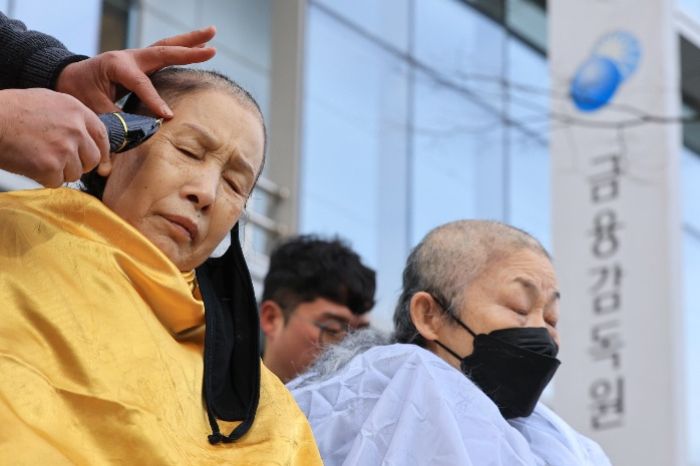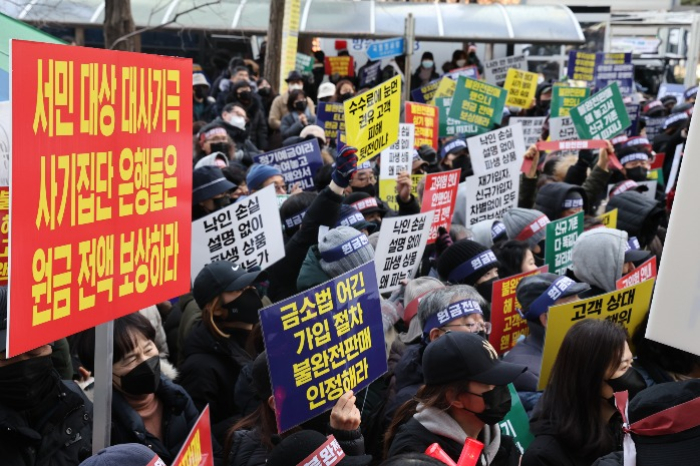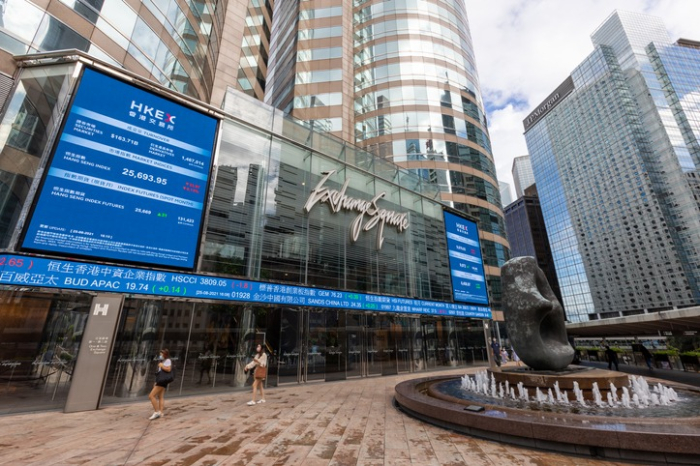Korean stock market
Korean investors doomed to suffer $171 mn losses from HSCEI ELS
Korean investors’ losses from HSCEI-tied ELS products are expected to swell past 6 trillion won ($4.5 billion) in H1 2024
By Jan 22, 2024 (Gmt+09:00)
3
Min read
Most Read
LG Chem to sell water filter business to Glenwood PE for $692 million


KT&G eyes overseas M&A after rejecting activist fund's offer


Kyobo Life poised to buy Japan’s SBI Group-owned savings bank


StockX in merger talks with Naver’s online reseller Kream


Meritz backs half of ex-manager’s $210 mn hedge fund



South Korean investors have already suffered about 230 billion won ($171 million) losses from their investments in equity-linked securities (ELS) tied to the performance of the Hang Seng China Enterprises Index (HSCEI) so far this year amid the freefalling index comprising shares of 50 Chinese firms.
According to the Korean banking industry on Sunday, losses from investments in HSCEI-linked ELS products sold by the country’s five commercial banks – Kookmin, Shinhan, Hana, Woori and NongHyup – reached 229.6 billion won upon their three-year maturities in the first three weeks of this year.
Of about 435.3 billion won worth of the HSCEI ELS products that matured in the cited period, the banks redeemed only 257.5 billion won, lifting their average loss rate to 52.7 percent as of Friday last week.
The losses snowballed further because the Hong Kong-listed index, which is the underlying asset of the product, plunged 6.5% over the last week to the 5,100 level.
If the HSCEI continues hovering around the current 5,100 level, principal losses from Koreans’ investments in the HSCEI-linked ELS products are expected to balloon to more than 6 trillion won in the first half of this year, according to the industry.
HIGH-RISK, HIGH-VOLATILE FINANCIAL PRODUCT
ELS are derivative products, the returns of which are determined based on the performance of underlying assets such as a stock index or individual shares.

ELS investors are entitled to promised returns if the underlying asset’s price stays above a certain level, or knock-in level, until maturity, usually three years.
However, if the price of underlying assets falls below the knock-in level, usually 50% of the price at the time of the ELS purchase, investors are asked to accept the entire losses incurred.
A total of 10.2 trillion won worth of HSCEI-linked ELS products are due to expire in the first half of this year, estimated the local bank industry.
The total outstanding HSCEI-tied ELS balance stood at 19.3 trillion won as of Nov. 15, 15.9 trillion won of which was sold by Korean commercial banks. Nearly 80% of them will mature this year, raising concerns about potential massive losses unless the Hong Kong stock index recovers dramatically.
Many Korean investors signed a three-year contract to invest in HSCEI-linked ELS products in 2021 when the index soared to over 12,000.
The index, however, plummeted to 8,000 at the end of last year before dipping further to 5,100 this year amid growing concerns over the Chinese economy.
The HSCEI is composed of shares of 50 Chinese stocks traded outside mainland China.
ON-SITE INSPECTIONS ON POSSIBLE MISSELLING

As it looks almost certain that Koreans’ investments in HSCEI-tied ELS products will log huge losses, the Korean financial authorities have kicked off official on-site inspections on the sellers of those products to check for potential misselling cases.
The Financial Supervisory Service (FSS) earlier this month began an on-site investigation of Kookmin Bank, the commercial banking unit of KB Financial Group Inc., and Korea Investment & Securities Co. They were the top sellers of the HSCEI ELS products.
Later, the FSS will inspect four other banks – NongHyup, Shinhan, Hana and Standard Chartered Bank Korea — and six more brokerage firms — KB Securities Co., NH Investment & Securities Co., Mirae Asset Securities Co., Samsung Securities Co., Shinhan Securities Co. and Kiwoom Securities Co.
Its official on-site inspection comes after its preliminary investigations in November and December discovered that some banks and brokerage houses had changed their internal standards to encourage the sale of the risky derivatives.
The Korean financial authorities will announce measures to prevent any similar investment fiasco in the future and compensation plans for related investors after the end of the FSS inspection around the Lunar New Year’s holiday in mid-February.
Write to Jae-Won Park at wonderful@hankyung.com
Sookyung Seo edited this article.
More to Read
-
 Korean stock marketS.Korea launches official probe into HSCEI-tied ELS sale
Korean stock marketS.Korea launches official probe into HSCEI-tied ELS saleJan 08, 2024 (Gmt+09:00)
5 Min read -
 Korean stock marketKorean ELS investors biting nails over sharp falls in Hong Kong shares
Korean stock marketKorean ELS investors biting nails over sharp falls in Hong Kong sharesNov 24, 2023 (Gmt+09:00)
3 Min read -
 Alternative investmentsS.Korea's DLS incurring losses due to stock slump exceed $800 billion
Alternative investmentsS.Korea's DLS incurring losses due to stock slump exceed $800 billionJan 09, 2023 (Gmt+09:00)
1 Min read
Comment 0
LOG IN


